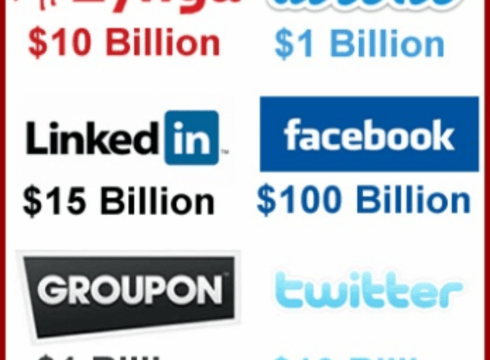Inc42 Daily Brief
Stay Ahead With Daily News & Analysis on India’s Tech & Startup Economy
Every entrepreneur planning a new venture faces the same question: what is my new business worth? It is one of the most frequently asked questions and regrettably with no definitive answer.
Value in its self is an elusive concept at the best of times. Since most of the time you are valuing something that may or may not happen in the future, there is a lot of room for assumptions and educated guesses. So for a startup with no previous track record and zero financial history – how does one go about setting a valuation especially when it comes to getting investors interested in the business and raising money?
I am happy to report with much delight and trepidation that there are indeterminate list of factors that will affect the outcome of a startup’s valuation; track record of the founders, attractiveness of the market, growth cycle of the business, location, traction, supply of money, the recency and the size of exits, the willingness for an investor to pay a premium to get into a deal, gut feeling and the level of desperation of the entrepreneur looking for money, the list is endless.
Just as there is no ‘template’ approach to conduct a business the same goes for valuation. There are companies such as Urban Compass, an online property portal that helps in renting/selling apartments in New York, that can raise Millions in its seed round before the product stage because the founding team has an excellent track record with numerous successful exists. Whereas, companies such as Clinkle, a mobile payments start-up, could raise tens of Million also before beta launch even though its founder had minimal experience, however, the product belongs to a market that is growing and the idea is potentially groundbreaking. And why let’s say mystery startup X does not raise significant money in its seed round even while generating significant revenues each month with say a team with limited track record and a more niche market to cater to.
Why does startup valuation matter?
Valuation matters to entrepreneurs because it determines the share of the company they have to give away to an investor in exchange for money. At the early stage the value of the company is close to zero, but the valuation has to be a lot higher than that. Why? Let’s say you are looking for a seed investment of around $100, 000 in exchange for about 10% of your company. Your pre-money valuation will be $ 1 Million. This however, does not mean that your company is worth $1 Million now. Valuation at the early stages is a lot about the growth potential, as opposed to the present value.
How do you calculate your valuation at the early stages?
It is important to figure out how much money you need to grow to a point where you will show significant development and raise the next round of investment. Let’s say you need $100,000 to last for 18 months. Your investor does not have a lot of incentive to negotiate you down from this number. Because you demonstrated that this is the minimum amount that is needed to grow to the next stage without which the investor might lose initial investment as well. With the amount of investment set, it is imperative to figure out how much of the company to give to the investor. Anything more than 50% will leave you, the founder, with little incentive to work hard. Also, it cannot be 40% because that will leave very little equity for investors in your next round. 30% would only be reasonable if you are getting a large chunk of seed money. In our case we are looking for only $100, 000, a relatively small amount. So you will probably give away anywhere between 5-20% of the company. Since, $100,000 is set in stone, so is 5%-20% equity ownership in return for the investment. That puts the (pre-money) valuation somewhere between $500,000 (if you give away 20% of the company for $100,000) and $2 Million (if you give away 5% of the company for $100,000).
It is important to remember here that the present equity ownership structure will change with future rounds of funding and new investors.
Now, the question of where in ‘5-20’% range will the valuation be? One, it will largely depend on how other investors value similar companies. Two, how well you can convince the investor that you are in the fast track for growth.
In the next part of the article I shall discuss the factors that influence valuation and investor’s perspective on valuation.
About The Author – Divya Sampath
Note: We at Inc42 take our ethics very seriously. More information about it can be found here.


